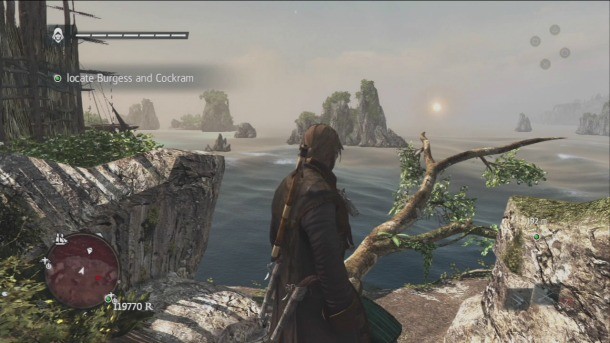Our extra-large special edition is here. Subscribe today and receive the 25% longer issue at no extra cost!
Opinion: Why I Don't Want To Collect Things Anymore

Whether it was Mario collecting coins for points, Banjo collecting musical notes to progress, or Rayman hover-jumping at that lum that was just out of reach, collecting has been one of most-common mechanics in video games. While there will always be a place for coins, fruits, and various power crystals in gaming, I believe we’ve reached a point where we should stop considering the aimless tracking down of various widgets a serious gameplay hook.
To be clear: I am not saying that all collecting must be done away with. There are plenty of examples of classic and contemporary collecting that are done very well and contribute meaningfully to gameplay design. Mario has been collecting red coins since Yoshi’s Island, and that mechanic has always complemented the platforming. The Riddler trophies in the recent Batman games also provide an excellent optional puzzle element.

The reason red coins and Riddler trophies are good collectibles is because they use collecting as a way to highlight gameplay. Collecting isn’t about the destination, it’s about the journey – when you’re trying to get that red coin, you have to solve platforming puzzles or think about a level in a new way. The collecting is just a means to the ends of achieving more dynamic platforming. Collecting works when it’s joined with other mechanics that work: when its used to create situations in which the best parts of a game are highlighted.
I feel that collecting is used as a crutch in lieu of more compelling content. Random, unimportant collectible items are sprinkled or hidden in a level or open-world. Tracking them down will either do nothing except award an achievement or (even worse) actually grant a desirable in-game perk, forcing you to collect a hundred doodads if you want it. Instead of rewarding the player for mastering the game’s concepts or mechanics, collecting in this way rewards mindless grinding.
Assassin’s Creed IV: Black Flag provides examples of both the right and wrong way to handle collecting. The treasure chests and sea shanties are both great collectibles. They are entirely optional, feature fun and appropriate gameplay (chase sequences for shanties and treasure hunting puzzles for the chests), and give rewards proportional to the time spent on them and the difficulty of the actions completed.

There are also 200 animus fragments in Black Flag, however. There’s no explained justification as to why they exist and they convey no reward except to bring up your total game completion percentage. Getting them requires next to no thought or ingenuity. I collected every animus fragment the first time I played through Black Flag, and I didn’t enjoy it for one minute. In fact, when I think about replaying that game now, collectibles like the animus fragments or the random chests stop me from starting it again.
In that case, not only did I dislike collecting the fragments, it actually detracted from my overall enjoyment of the game. In spite of the drive of completion that compelled me to sail to every island and find every fragment, it was three or four hours of gaming that I didn’t enjoy.
At least the collecting in Black Flag is strictly optional. In many games, you are forced to engage in mindless collecting to get the coolest powers or upgrades. In the first two Infamous games, if you want more energy for using your cool super powers, you’ll have to spend hours hunting down some 300 blast shards to level up your maximum capacity.

Having max capacity is awesome, and makes you feel unstoppable the way a super hero game should. To get there, however, you have to spend time in an otherwise fun and compelling game to mindlessly perform the same dull action over and over again. You shouldn’t have to eat your broccoli before you can have dessert in a power-fantasy.
There will always be a place for collecting in video games, and that isn’t a bad thing. Collecting paved the way for a lot of great game mechanics. Some games are made better by its inclusion; there are classics like Ape Escape or Pokémon whose central mechanics revolve around collecting. However, if collecting doesn’t contribute anything meaningful to a game, I think we’re better off without it.

Get the Game Informer Print Edition!
Explore your favorite games in premium print format, delivered to your door.
- 10 issues per year
- Only $4.80 per issue
- Full digital magazine archive access
- Since 1991









